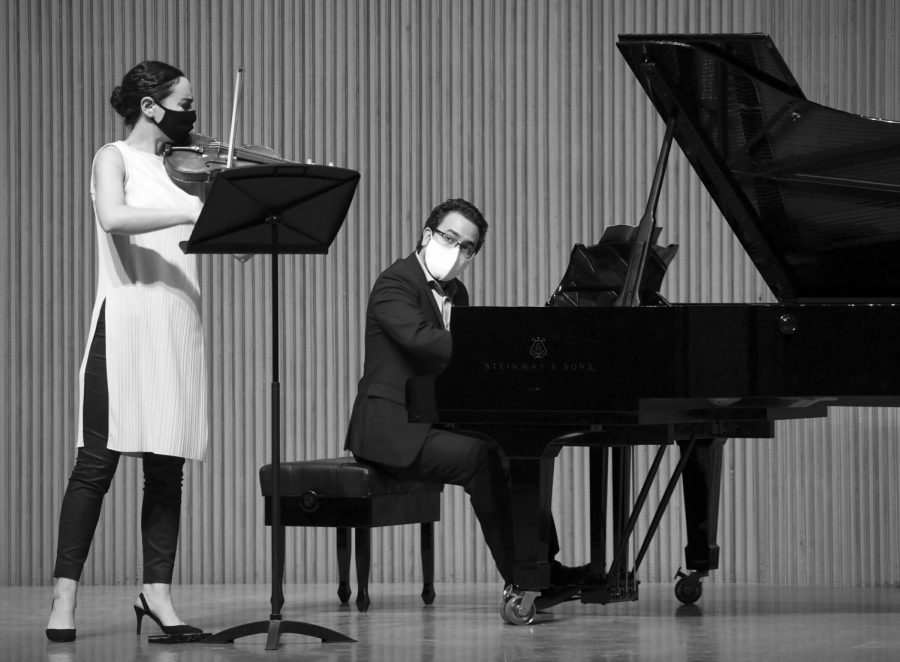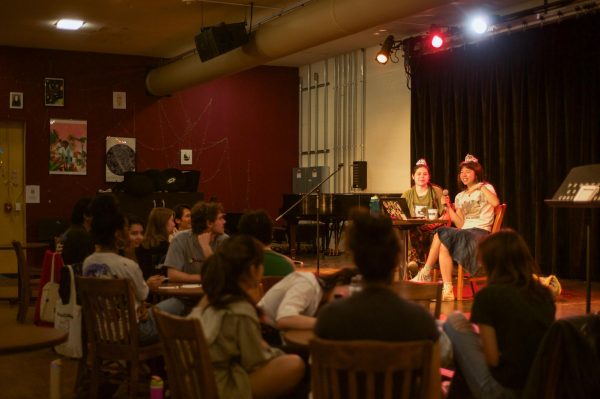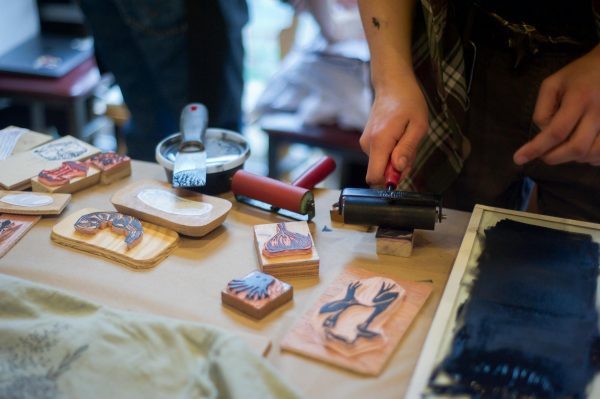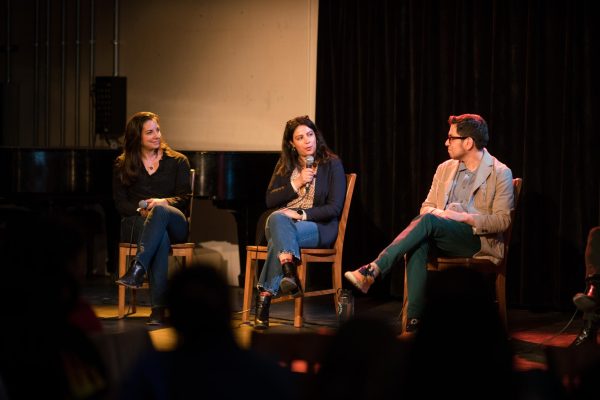Music, Athletics in Conversation at Opening Faculty Concert
Oberlin College, Conservatory, and Athletics department collaborated on a two-day symposium last weekend.
This past weekend, the Oberlin Conservatory, College, and Athletics Departments came together for a two-day symposium titled Music, Sports, and the Enduring Influence of Ancient Greece. The program drew from diverse resources across campus and included Conservatory musicians, College and Conservatory faculty, and student-athletes alike. According to the event organizer, Professor of Violin Sibbi Bernhardsson, the event was a celebration of solidarity across disciplines inspired by the interconnectedness of music and sport in Greek culture.
“It just sort of struck me, in Ancient Greek time, the most important things in society were sports and music,” Bernhardsson said. “Then I was thinking, since we have such a fabulous Athletics department and great Classics department, and, you know, a wonderful Conservatory, it would be fun to explore that collaboration.”
Despite the seemingly different experiences of athletes and artists, this weekend’s symposium worked to explore the connections between the two.
One panel was titled “Musicians and Athletes: United in Commitment,” and was specifically dedicated to find commonalities between the two student groups.
“Passion, the commitment, striving for excellence, performing under pressure, [this panel was created] to just talk about the similarities because I find that the Conservatory students and student-athletes actually have the most in common among Oberlin students in terms of time management,” Bernhardsson said.
However, the symposium demonstrated that there is more in common between athletes and artists besides time management skills. In between performances by Conservatory faculty, professors from the Creative Writing department performed poetry interweaving themes of athletics and the arts. Visiting Assistant Professor of Creative Writing Robin Beth Shaer performed that night and felt that all students who attended the event could connect to the pieces.
“Many of the poems I read spoke of the space sports and music make in our lives for healing and transformation, which seemed especially apt after the harrowing 18 months we have all had,” she said.
The event also included family-friendly activities aimed at helping children get involved in sports and music while having fun. Last Saturday afternoon, children were invited to the Heisman Club Field House to participate in numerous activities, including a sports section with tennis, lacrosse, and baseball along with stations to try out various instruments.
Sports and arts both have the power to heal and transform, but the similarities do not stop there. There are many comparisons, both in terms of preparation and performance. Conservatory fourth-year, Jazz Bass major, and baseball player Ian Ashby, who performed at the symposium concert on Sunday evening, is acutely aware of how these shared skills translate between both music and athletics.
“I think in both, I’m realizing how important it is to not forget your foundations and the stone-cold fundamentals of both,” Ashby said. “It’s just this universal process of buying in and knowing that this teacher or coach knows what he’s talking about and is trying to make you better.”
Additionally, overcoming performance anxiety is a challenge across all performative disciplines. The similarities between the ways that athletes and artists combat performance anxiety are striking. For Shaer, overcoming performance-related stress begins with reframing the audience.
“I always remind myself that the relationship between the performer and the audience is not adversarial,” she said. “They’re not there to see me fall or fail; they’re there to hear what I’m about to say or what I’m about to perform, but they want to see me succeed.”
Having the right mindset is crucial to success in any performance, but what about physical wellness? Though some may not view music as being a physically demanding activity, Professor Bernhardsson stressed the importance of taking care of the body and mind in all performative activities.
“Being healthy and staying in shape is critical for longevity in music,” Bernhardsson said. “We have to make sure that we’re doing physical things correctly, so that is something that I think musicians and athletes have in common. You just have to take care of your body. If you do things correctly and have a healthy mind, healthy body, you can do it for a long time and that’s critical.”









